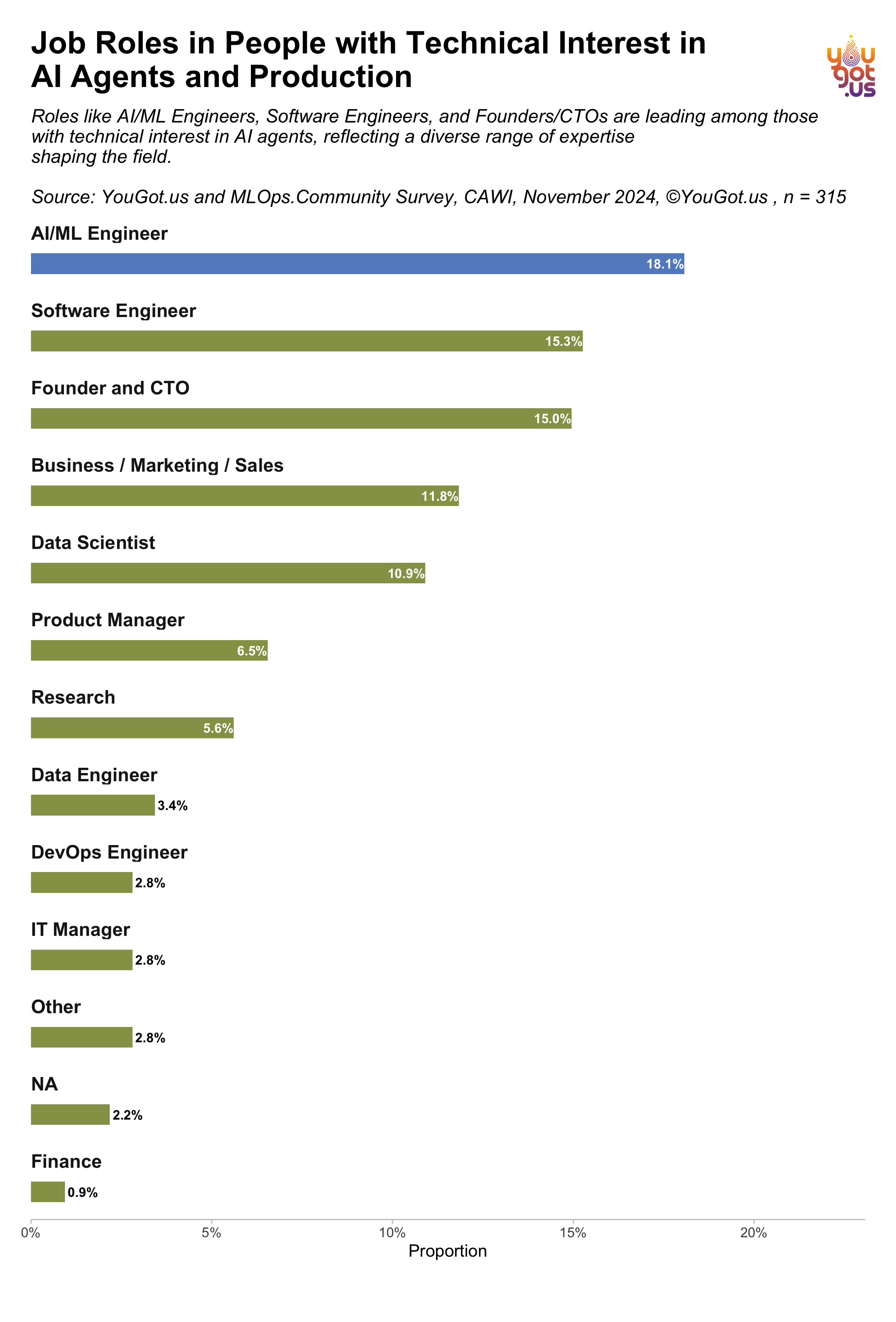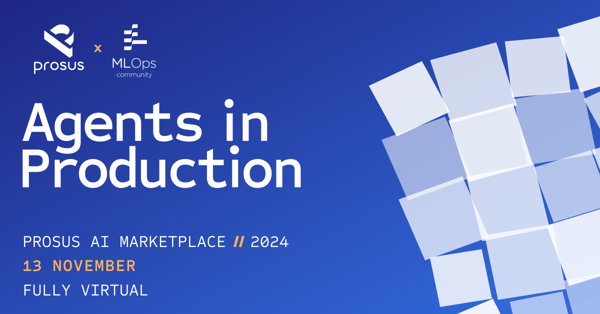AI Agents are on the rise and commerical models are leading the way. In an era where artificial intelligence is reshaping business operations, AI agents are emerging as a transformative force in enterprise environments. Our recent YouGot.us survey in collaboration with MLOps Community in November 2024 provides new insights into how organizations are implementing AI agents in their production environments.
Current State of AI Agent Deployment
The landscape of AI agent adoption reveals a clear preference for commercial solutions, with organizations strategically balancing capability, cost, and control. Thomas Wolf, Co-founder and Chief Science Officer at Hugging Face, emphasizes that while general-purpose AI agents represent the future, the immediate focus should be on industry-specific applications and developing robust tooling infrastructure.
“The key to successful AI agent deployment lies not in pursuing general-purpose solutions, but in building specialized tools for specific vertical applications,” Wolf notes. This practical approach aligns with current market trends and organizational needs.

Commercial vs. Open Source: A Shifting Landscape
Commercial Model Adoption: OpenAI’s GPT-4 leads the market, utilized by 56% of organizations deploying AI agents. This preference underscores the reliability and robust support infrastructure associated with commercial solutions.
Open-Source Model Adoption: Open-source large language models (LLMs) are gaining traction as organizations seek greater customization and cost control. The emerging ecosystem of tools and frameworks is facilitating the deployment of open-source models, indicating a significant shift towards these solutions in the enterprise sector.
Hybrid Approaches: Companies are increasingly integrating both commercial and open-source models to address diverse use cases. This strategy involves combining models like Google’s Gemini and Meta’s LLaMA with commercial options to leverage the strengths of each.

Survey Demographics
The “Agents in Production 2024” event attracted a diverse group of professionals involved in machine learning and AI operations. Participants included C-suite executives, machine learning engineers, and data scientists, reflecting the event’s focus on practical applications and the deployment of AI agents across various industries.
This study provides a foundational understanding of AI agent deployment, offering insights into current trends and guiding future strategies for organizations considering the integration of AI agents into their operations.
Industry Impact and Future Directions
Our entire and upcoming AI Agent report indicates an early-stage market where organizations are becoming more sophisticated in their AI agent deployment strategies. This evolution suggests several key trends:
- Increased focus on specialized, industry-specific applications
- Growing importance of MLOps and deployment infrastructure
- Rising demand for customizable and cost-effective solutions
Citation
@online{garcia2024,
author = {Garcia, Christina},
title = {Announcing {AI} {Agents} in {Production} {Study}},
date = {2024-11-23},
url = {https://yougot.us/news/2024-11-23-AI-Agents-in-Production},
langid = {en}
}

